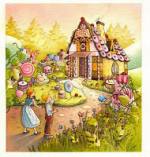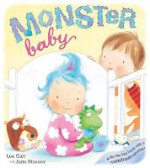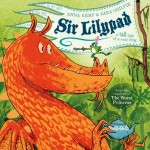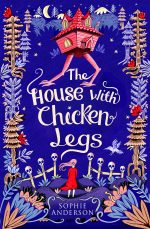John Green
(Bloomsbury)
Quentin has always had a thing for Margo. As children they were inseparable but as time went on they grew apart, Margo joining the in-crowd, whereas Quentin joined the band geeks, despite not playing a musical instrument. These days Margo barely looks at him, despite living next door and Quentin admires her, and longs for her, from afar. So when she suddenly climbs into his bedroom one night asking for his assistance in settling a few scores, Quentin jumps at the opportunity and spends the night with Margo roaming the streets of Orlando, distributing her retribution on cheating boyfriends, disloyal friends and naybody she feels deserves it. Despite being out of his comfort zone, Quentin ends up spending the night of his life and hopes that this will kick-start his relationship with Margo again. But the next day, Margo is not at school and soon it becomes obvious that she has run away. It is not the first time she has of course, and she has always left clues, wanting to be found. And this time Quentin is confident that she has left clues for him to do the chasing.
I read Looking for Alaska when it first came out and as soon as I started reading Paper Towns, I felt a very strong sense of déjà-vu: a boy, clever, academic and articulate who falls for a girl who is complicated, damaged, unhappy, desperate to exercise her independence and her free spirit, and who gives the impression of wanting to be saved but in the end, doesn’t. The book is an ode to individuality, to being true to one’s free spirit, to be brave enough to stand out from the crowds, and to have the guts not to do what is expected of you sometimes. It is the journey of a young man who has always been what others expected him to be and who, thanks to a girl who is after all, his antithesis, goes through a journey that enables him to finally unlock his true self. Well, that’s exactly what Looking for Alaska is about. Unfortunately, I didn’t like Looking for Alaska, so this was not a good start for Paper Towns.
But I did prefer Paper Towns, although I can’t say I liked it. John Green is very talented, don’t get me wrong. The writing is articulate, often philosophical and deep … too deep? It is hard to reconcile the characters with “regular” teenagers and regular adults actually. The episode in which Quentin is at the table with his parents discussing how we see people, leading on to Quentin’s realisation of how Margo might be feeling is a particularly good piece of writing, but also extremely unrealistic in my opinion. How many parents talk to their children that way? And how many teenagers however clever and well-adjusted, are that poised in their thinking? I just cannot understand why John Green insists on writing about teenagers. Because he makes his teenagers too unrealistic for me to enjoy his books but his ideas and style would suit adult fiction marvellously. But here is the old argument again: is this teen fiction aimed at adults, or teen fiction for teens? I was left as confused reading Paper Towns as I was reading Looking for Alaska for this reason. Thankfully the over-seriousness of the text is sometimes counter-balanced by some true teenage banter, such as the hilarious dialogue regarding Ben’s tongue, and unlike in Looking for Alaska, I felt some empathy towards some of the characters (namely Quentin and Radar here). The story did not drag, I did not struggle to finish the book (although there was a bit of a lull half-way through).
Maybe it’s just me, maybe I just don’t get it. John Green does very well as far as literary prizes are concerned, but he also has a huge teen following in his native US so young readers obviously like him (although this could also be due to his omni-presence on the net with Brotherhood 2.0 , and Nerd Fighters for example). Maybe I am misunderstanding teenagers? But let’s be honest, I don’t know many who can quote Emily Dickinson, and I work in a school full of them. I always think realistic teen fiction needs to stay true to its words: be realistic and show teenagers as they really are. I can’t see many of my pupils would enjoy this … the selected few, the gifted ones, possibly, and maybe that is who Green has in mind when he is writing. But then again, maybe I am just totally missing the point of John Green’s writing. I invite you to read his stuff and prove me wrong!
On a lighter note Omnictionary, the online self-editing reference source that Radar is obsessed with and which plays a central part in the story, does really exist, you can find it here.





